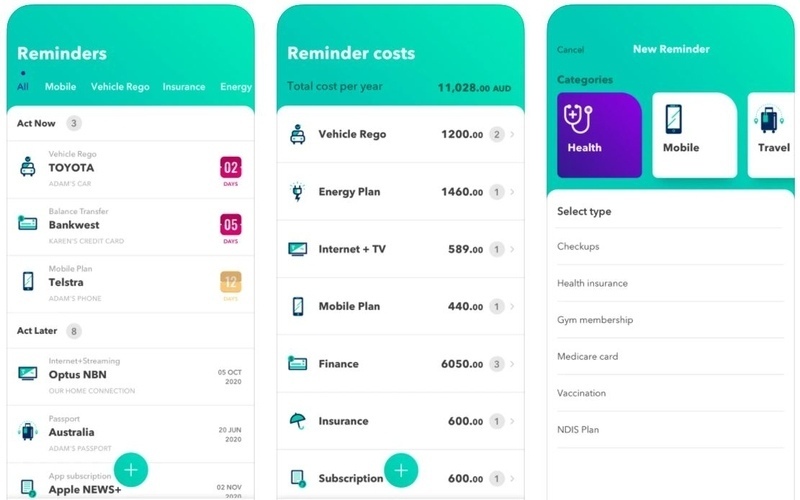We’ve all heard of prenuptial and postnuptial agreements: contractual agreements to settle a couple’s assets in the event they split up.
But we bet you haven’t heard of its lesser known cousin: the pronuptial agreement.
What is a pronup?
A pronuptial agreement is a written financial plan that you can put in place with your partner, with the help of a certified financial planner, to set out your financial future together.
With money the number one cause of divorce in Australia and a lack of communication around finances the main cause, a ‘pronup’ may just be the solution.
The Financial Planning Association (FPA) of Australia has coined the ‘pronup’ term. Dante De Gori, CEO of the FPA described it as “simply a financial plan with a name and purpose people understand and need.”
“It’s about taking the time to discuss your goals for the future and creating a plan so your money can fund your individual and joint dreams,” Mr De Gori said.
“A pronup is right for every couple, regardless of whether you’re de facto or married, same-sex or mixed-gender, young or advanced in years. It’s a great way to talk openly about money and life goals with your partner with the support of a professional trained in helping you get there.”

Pictured: Chris Giaouris. Image supplied.
Certified financial planner, Chris Giaouris said unlike prenups or postnups, pronups are designed with success in mind – not failure.
“A pronup does have a large focus on financial goals but what we find is that often it leads to conversations and plans around things which are much more important than money. The term pronup carries with it a range of positive connotations in my opinion, as it’s designed with success in mind, not failure,” Mr Giaouris told Savings.com.au.
“A prenup is designed with failure in mind. In fact, failure is presumed when agreeing to sign a prenup with your spouse. There are many arguments for and against a prenup, but ultimately they all are written with an assumption that the worst happens. A prenup on the other hand, is the complete opposite.
“Like a prenup, it is a plan, but unlike a prenup it is a forward thinking plan for success rather than a backwards looking plan for failure or financial protection against failure.”
As a financial planner, Mr Giaouris has helped many couples develop a pronup, like Susan and Callum.

Case Study
Callum and Susan turned to the help of financial planner Chris Giaouris to develop a ‘pronup’ after they bought a house and started a family.
“Once we bought a house and started a family, that really pushed us to work with our advisor and develop a financial plan,” Callum said.
They said creating a pronup has helped them to get on top of their finances by helping them to look at the bigger picture.
“It was the first time we had fully thought through both our short and long-term financial goals.
“We are now working towards joint goals, and have planned for things like holidays and car upgrades.”
Mr Giaouris said he’s seeing more and more couples coming to him for help with their finances.
“More and more Australians are understanding the value in seeking professional advice and if they are seeking advice from a financial planner, they will be receiving a pronup as part of this process. We’re creating new pronups for couples all the time, but importantly we are also reviewing pronups for all of our clients on a regular basis.”
Mr Giaouris said developing a pronup, or a financial plan, gives couples a clear direction on how to achieve their financial goals.
“For some, it’s about them understanding their own limitations and seeking peace of mind knowing that they have the guidance of a financial planner who has lived through their situation before. A pronup can keep you accountable to a plan and can help take a lot of the emotion out of the financial decisions you are making on a daily basis,” he said.
“For many, it provides them with a roadmap of what they need to be doing in order to achieve the things they are trying to achieve. Think of it like driving to a place you’ve never been before – you can either plan your route or wing it.
“Generally, a planned route will get you there more efficiently. Sometimes, an unplanned route means you won’t get to where you are trying to go at all!”
How to handle money in your relationship
Once you’ve reached the stage in your relationship where you’re pretty sure you’re with the right person, it’s time to set some goals and make a financial plan.
1. Disclose your money situation
First things first. If you don’t know what you and your respective partner’s money situation is, the harder it will be to map out a financial plan for the future. So the very first thing you could both do is to get “financially naked” and disclose each other’s money situation.
Start by going over all the basics: your income, how much you owe (student debt, credit card debt, loans, other debts) and how much you spend and save.
Now may be the perfect time to address anything you’re concerned about with your partner’s financial situation. Student loan debt might not be a deal breaker, but what if your partner has whopping credit card debt? That means they are likely to have a bad credit rating, which will make it harder to apply for a home loan later on.
Don’t forget the sharing goes both ways. Whatever you want to learn about your partner’s financial situation, they also have the right to learn the same about you. Neither of you needs to be financially perfect, but you both do need to be on the same page.
2. Have a written budget
Whether you share your finances or not, having a written budget to track your earning and spending helps put you in control of your finances.
Read our ultimate guide on budgeting and saving here.
3. Discuss your money goals
Once you’ve done the basic groundwork, it’s time to get extremely honest about your financial hopes and dreams – and whether or not your financial goals are compatible with your partners.
Perhaps your partner has big money goals, like buying an investment property or backpacking around the world. Are those goals you’re also interested in and are willing to make sacrifices for to accomplish?
Conversely, maybe you’re saving up for a house deposit and you’re happy to forego holidays while you save up. Is your partner on board with your plan?
Even if your money goals aren’t perfectly aligned at the moment, the most important thing is that you’re both willing to make compromises to get to a place that makes you both financially happy.
4. Think about how you’re going to combine finances
If you haven’t already combined your finances, now is the time to think about whether or not that’s on the cards for you as a couple.
Some couples choose to open up a joint bank account and pool all their finances together. Others prefer to keep their money separate for the entirety of their relationship.
The choice is entirely up to you, but the reality is that even if you choose not to combine finances, your partner’s money situation will affect you. If they’ve got a massive chunk of debt to pay off, you may have to decide that you’re okay scrimping and saving to help them pay off that debt faster.
Combining finances comes down to personal preference. You might feel like you need to protect yourself by keeping your finances separate, or you might want to open up a joint account to simplify things as much as possible.
Regardless of whether or not you decide to open up a joint bank account with your partner, youdo need to be on the same page when it comes to budgeting.
Can’t decide whether or not to open up a joint account with your partner? Read our in-depth article on the arguments for and against here.
5. Ask for help if you need it
If money dilemmas are overwhelming your relationship or you just need a bit of guidance, don’t be afraid to reach out to a financial planner for help.
There’s also a free financial counselling service, Financial Counselling Australia, that’s available in every state
Savings.com.au’s two cents
Pronup, prenup, postnup, potato, potato. Whatever the buzzword of the day, it all comes back to one thing: creating a financial plan. Taking the time to have a conversation with your partner and develop a plan to build your long term financial plan can be a good way of keeping your financial goals on track.
Money matters are the least dreamy part of a relationship, but managing money as a couple doesn’t have to be a big headache, or a cause of heartache.
Yes, talking about money with your partner can be awkward, uncomfortable and embarrassing, and it’s no one’s idea of a hot date night – but not acknowledging the elephant in the room is detrimental to your finances and your relationship.



 Hanan Dervisevic
Hanan Dervisevic
 Emma Duffy
Emma Duffy













